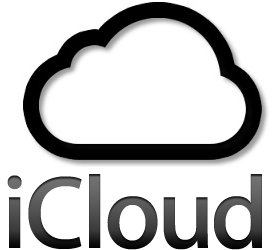Steven Sinofsky is a very smart guy. The former Windows leader, now a working partner with venture firm Andreessen Horowitz and an executive in residence at Harvard Business School, has put together a list of the ten biggest tech trends he expects for 2014.
Published in a recent blog post, here’s what Sinofsky had to say:
- High-quality, low-cost devices are going to be hot items. Sinofsky confirms, "Devices will put transistors to work for sensors, rich graphics, and discrete processors. These devices will continue to drop precipitously in price to what seem today like ridiculous levels such as we’ve seen at discount super stores this holiday shopping season in the US." Motorola, which is now owned by Google, made its own Android phone called the Moto G. You can purchase the device for $179. An unlocked iPhone 5S is priced at $649.
- Cloud-based productivity tools will see exponential growth in active users. Sinofsky says he believes a long list of web-based startups making tools for the enterprise will see big growth. "Asana, Quip, Paper, Mixpanel, Lucidchart, Haikudeck or others will see viral expansion kick-in. Established tools such as Evernote, Box, Dropbox, WhatsApp, and more with high active usage will see major increases in cross-organization work as they grow to become essential tools for whole organizations, " he said.
- Companies will opt to store data using the cloud rather than buying software to install in their own data centers. "The capabilities of cloud-based services will have grown to such a degree, particularly in terms of collaboration and sharing, that they will dwarf anything that can be done within the confines of a single enterprise," Sinofsky says.
- Messaging will override e-mail. "Email will increasingly be viewed as 'fax' and SMS will be used for 'official' communications and 'form letters' as person to person begins to use much richer and more expressive (fun) tools," says Sinofsky. He advises people to, "Skip email notifications, rely on SMS only when critical (security and verification), and assume heterogeneity for messaging choices. He goes on to say we can expect to see more tools building in messaging capabilities with context scoped to the app."
- Cross-platform challenges will Increase. Sinofsky says that a general app design for iOS and Android will be increasingly unwieldly to develop. "Ultimately, developers will need to pick their lead platforms or have substantial code bases across platforms and face the challenge of keeping functionality in sync," he said.
- There’s going to be divergence between small screens and big screens. Sinofsky confirms that with increasing use of cloud productivity, more products will arrive that are designed exclusively for larger screen devices. Some apps that originated on the phone will have to be modified for tablets, phablets, laptops, and hybrid computing devices.
- Urban living will become digital living. Increasing numbers of city dwellers will become 100% digital/mobile. "Mobile platforms will be part of nearly every purchase or transaction. Anything requiring reservations, tickets, physical resources, delivery, or scheduling will only win the hearts and minds of the new urban if available via mobile," Sinofsky expects.
- Sharing will become normal. From autos to office space and more, sharing will become normal for assets that are expensive or infrequently used.
- Phablets will become normal. The device straddling the functionalities of a tablet and a smartphone that seems rather awkward now, will make perfect sense.
- Cloud storage quotas will go away. Sinofsky expects "2014 will be a year in which any individual will see alternatives for unlimited cloud storage. Email, files, photos, applications, mobile backup and more will be embedded in the price of devices or services with additional capabilities beyond gigabytes".
“We will see 2014 not as one year of progress, but as the culmination of the past 15 years of development of the consumer internet as ‘it all comes together’ with incredibly rapid adoption of products and technologies that at once become more affordable, more ubiquitous, and more necessary for our work and personal lives,” Sinofsky said.
For more details about these exponential technology trends for 2014, see Sinofsky’s blog.
Include your comments about 2014’s tech trends below!
[Source: Steven Sinofsky]










